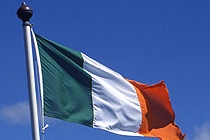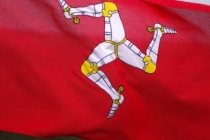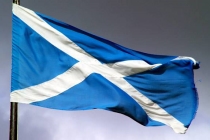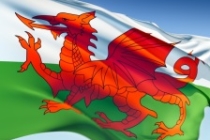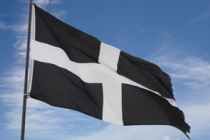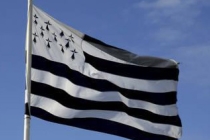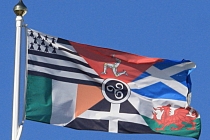I should make it clear
from the outset, I am by no means a natural linguist - I’m hard of
hearing and I don’t practice as often as I could. I therefore owe a debt
of gratitude to those who have enabled me to acquire a little Manx.
Growing up I gradually became aware of how many vestigial Manx words were still in use in our household.
My
mother would say a plant was ’skillagalee’ if it was pale and thin,
someone was ’kiddhag’ if they were left handed and day-dreaming was
called being in a ’jarrood’.
Two of my maternal great
grandparents it transpired, had been native speakers. In the 1980s,
whilst I was living across the water, my mother made a concerted and
successful effort to learn the language.
Come 1990, I had returned home and made an abortive attempt to follow suit, briefly attending night school.
With hindsight, I can see the time and place just wasn’t right.
My
interest in things Manx was partly satiated in other ways - for example
I collected Manx books and paid an annual subscription to Caarjyn ny
Gaelgey.
For a speech at my brother’s wedding in millennium year I
learned a Manx toast by rote - and felt a bit of a fraud. I was
delighted when my sons had the opportunity to learn some Manx at primary
school.
A little over two years ago I finally bit the bullet and
began attending a beginner’s conversational class under the auspices of
Culture Vannin.
I had both the time and the inclination and my enthusiasm had been buoyed by my eldest sister becoming fluent.
It was a revelation.
The teaching was informal, friendly and a great deal of fun.
Last
academic year I chose to undertake the Teisht Cadjin Gaelgagh (GCSE
equivalent) at UCM and was pleasantly surprised at the outcome. The
diverse demographic of students of Manx also illustrates the fact that
the language belongs to anyone who cares to take it up - whatever their
age, gender or nationality.
This is a great time to learn some Manx. There are classes, informal groups and events occurring all over the island.
The
digital revolution has facilitated a burgeoning of online resources and
there are more Manx books available in print than ever before.
The work of The Gaelic Broadcasting Committee together with Manx Radio means you can hear the language on air regularly.
The
unqualified success of the Bunscoill Gaelgagh has demonstrated both the
advantages of bilingualism and the demand for an education in Manx.
Alumni are already making significant cultural contributions.
Learning a little Gaelg will reinforce your emotional bond with the island and bolster a sense of place.
It can enrich your appreciation of history, place names, folklore, music, art and dance.
For many learning Manx has piqued an interest in sister Celtic languages.
The
language is integral to our national identity and alongside tailless
cats, kippers and motorcycle racing, it raises our profile in the world.
The renaissance of Manx and the wider benefits to this island are a joy to behold.
The harbingers of doom who rushed to sound the death knell have been shown to be mistaken.
What
of the future? My elder son has now begun adult classes and I have few
excuses for not applying myself better. As they say, cha nel mee agh
gynsaghey - I am but learning.
Source























